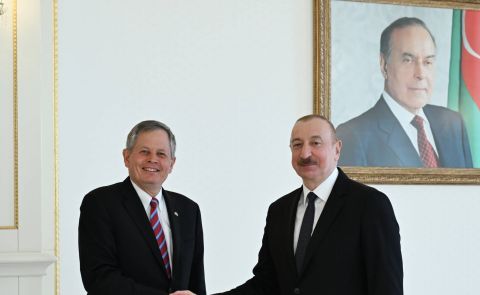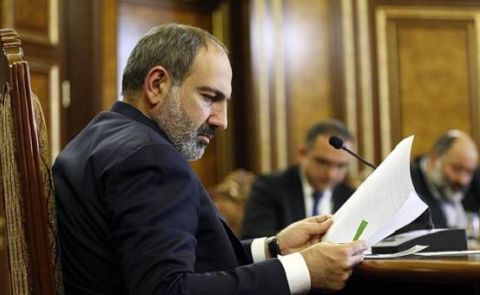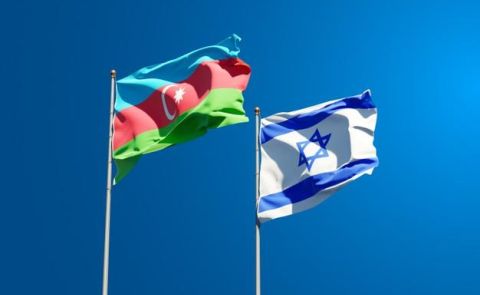
South Caucasus records first coronavirus case

On 26 February, the first case of coronavirus has been reported in Georgia. The infected patient is a Georgian citizen. Reportedly, a 50-year-old man travelled to Iran for a week and entered the country from Azerbaijan.
“During the investigation, the footage… reflects that person passing through customs control was analyzed seriously, and it was defined that his temperature was normal while passing Astara border checkpoint, no suspicious [issue] was recorded in his health. It is possible that in accordance with the nature of the disease, the symptoms of the disease appeared within 10-12 hours traveling from the Astara border checkpoint (Iran/Azerbaijan) to the Georgian border,“ read the official statement from the Georgian Health Ministry.
The Georgian Prime Minister Giorgi Gakharia called on the people of Georgia not to panic in the aftermath of the news. “I want to emphasize that we have no reason to panic. The Ministry of Health, relevant agencies, and the Interagency Coordination Council are fully controlling the situation. We should all follow the WHO recommendations. I would also like to say that the work of the Interagency Coordination Council, which was established on 28 January, is still in progress. Thanks to the effective work of this Council, it was possible to report the first case of the virus on the border, without direct contact with our citizens. We have to thank each and every employee of the Ministry of Health, as well as the border guards and customs officials,” he stated.
Georgia’s Health Minister Ekaterine Tikaradze assured that the risk of spreading the disease had been reduced in the country because of timely action. “We continue our coordinated work. We have enough places to quarantine citizens who were in close contact with infected people and the citizens, who arrive from high-risk areas in Georgia. We take care that they have the appropriate conditions. There are several hospitals mobilized in Tbilisi, as well as in Kutaisi and Batumi. I assure our citizens that at this stage there is no risk of a widespread outbreak of the coronavirus in Georgia. We will continue to work twenty-four hours a day,” she said. Tikaradze added that the patient’s health condition is satisfactory and currently he is placed in isolation at the Infectious Diseases Hospital in Tbilisi alongside other 14 patients who were suspected of having the virus.
Georgia’s Economy Minister Natia Turnava also highlighted the economic aspects which the recording of the coronavirus in Georgia would have. “The direct impact on Georgian tourism is estimated at a loss of around 30 million GEL per month. This concerns merely the restriction of flights to Iran and China. But it is likely that people from other countries will refrain from traveling and this will have a negative impact too. This virus has its specific characteristics and with the warming we await in spring, I hope the challenge will be overcome. I also believe we will manage to fill in the 2-3 months loss as our tourism sector is now blossoming,“ she said. The Georgian government also suspended land traffic with Azerbaijan and Iran.
Just half an hour later after the case was reported, Georgian social media featured photos of people standing in lines at shops and pharmacies to stock up groceries and face masks. It didn’t take long for the pharmacies to become short of face masks, as people rushed there in panic as soon as the coronavirus case was confirmed in Georgia. It was reported in fact that on Peking street in Tbilisi, only one 24/7 pharmacy had face masks to sell roughly 40 minutes after the announcement was made.
The Georgian government already issued a decree instructing various state agencies to present their action plans against the spread of the respiratory infection and their budgets by 1 March and to ensure a wide involvement of the media and public around the issue and provide updated and correct information to the public regarding the coronavirus.
Meanwhile, in Azerbaijan 177 persons were taken under doctor’s observation at Azerbaijan’s Astara and Jalilabad Central Regional Hospitals. As for Armenia 52 Armenians were evacuated from Iran, and 95 persons were tested in total, with negative results.
After Georgia, Denmark, Estonia and Romania also reported their first cases of coronavirus infection, the Director of the World Health Organization (WHO) in Europe, Hans Kluge announced that the virus had recently spread to 43 different countries worldwide, including 13 in Europe.
See Also


Pashinyan Commemorates First Republic Day, Highlights Progress in Sovereignty and Peace Efforts

Israeli Ambassador to Armenia Acknowledges Challenges but Optimistic About Future Armenian-Israeli Cooperation

EU Plans Closer Cooperation with Azerbaijan, Georgia, Türkiye, and Other Black Sea States

Azerbaijan, Türkiye, and Pakistan Highlight Growing Strategic Cooperation at Lachin Summit

